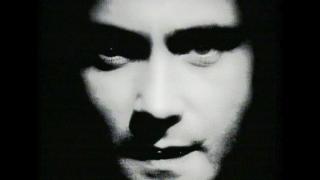Another Top 10 Song Meanings Everyone Gets Wrong

We decided to set the record straight once again on some of your favorite songs. Welcome to WatchMojo.com, and today we'll be counting down Another Top 10 Song Meanings Everyone Gets Wrong. For this list, we'll be looking at tunes that have a widely accepted perceived meaning that differs from the artist's.
Special thanks to our user 23QT123 for suggesting this idea, check out the voting page at
http://www.WatchMojo.comsuggest/Top+Ten+Song+Meanings+Everyone+Gets+Wrong
#10: “Turning Japanese” (1980) The Vapors
We’re gonna go zero to one hundred right off the bat with everyone’s favorite song that’s not so subtly about flogging your dolphin. Or is it? We’re sorry to break it to you, but it’s actually about the feeling of loneliness and shame after breaking up with a girl. The many references to pictures of a woman the singer is obsessing over aren’t actually used for nefarious purposes, he’s just upset. And by turning Japanese, he means he’s turning into something unexpected. It’s hard to imagine that the lines “I sit there staring and there’s nothing else to do” don’t tie in to self-pleasure, but clearly our minds are in the gutter on this one.
#9: “Hey Man Nice Shot” (1995) Filter
Top 10 Song Meanings Everyone Gets Wrong
Moving on to a far darker topic, “Hey Man, Nice Shot” debuted just one year after the world was shocked by Kurt Cobain’s suicide. Given its timing, many assumed the song was about this event, with multiple lines clearly suggesting the theme of suicide. In reality, it was inspired by R. Budd Dwyer, a former Pennsylvania State Treasurer, who committed suicide on the air in 1987. This was in response to an indictment on Dwyer for bribery despite his claims of being framed. Lines referencing those who were right there after the smoke has gone highlight the suicide’s public nature, which differ from Cobain’s private suicide. This misinterpretation is due largely to poor timing, and misdirected controversy upon its release.
#8: “Imagine” (1971) John Lennon
Top 10 Imagine Dragons Songs
Rolling Stone hailed this song as “faith in the power of a world, united in purpose, to repair and change itself.” These sentiments, along with its hopeful sound, complete with chirping birds make this classic song as American as apple pie. Except for the fact that even John Lennon admits that it’s virtually the Communist Manifesto. Upon closer analysis you’ll find remarks about a world with no possessions, no countries, and no religion. Preaching anti-capitalism and anti-religion doesn’t get much sneakier than this, especially considering the fact that it was released in the early '70s, during the peak of the Vietnam War.
#7: “Ironic” (1995) Alanis Morissette
Events and statements that are deliberately opposite of what one may expect are considered ironic. What takes place in Alanis Morissette’s song can be more appropriately categorized as tragic. Winning the lottery and dying the next day, being pardoned from death row two minutes too late, and discovering your dream man is already married are all tragic events, leaving listeners confused why a song named Ironic contains no real irony. Stay with us here, but the lack of irony in a song named irony, is in fact, ironic. Confused? Think it over a bit, it’s actually quite clever.
#6: “Hallelujah” (1984) Leonard Cohen
“Hallelujah’ is overflowing with religious reference from King David to Samson. Despite the divine nature of the song, the oft-repeated hallelujah is not intended to express worship, but rather deep pain from a man who has experienced love turned sour. Each hallelujah is spoken a little more tongue in cheek with tragic love stories such as David’s romantic encounter with Bathsheba interwoven throughout. There’s a reason this song remains so relevant today, as it embodies the sensation of great sorrow so profoundly, despite lyrics suggesting adoration and exaltation upon first impression.
#5: “American Girl” (1977) Tom Petty
Casey James' Favorite American Idol Moments & Paying His Dues | From Kenya to London With Tymilyfe
Proximity to tragedy has a strange way of misconstruing a song’s meaning, as exemplified once again in Tom Petty’s “American Girl.” A young woman from the University of Florida committed suicide shortly before the songs release, which incidentally took place close to Gainesville, where Tom Petty was born. The line about a girl standing alone on her balcony is merely a coincidence, with Petty’s inspiration coming from the sounds of the freeway near his apartment. Unfortunately for urban legend devotees, Tom’s made it clear that “American Girl” is a love song with no intentional references to the tragic event.
#4: “Ticket to Ride” (1965) The Beatles
Ticketmaster’s Never Ending Ticket Fiasco | Taylor Swift Mania | Amai Kuda et Les Bois Interview
The Beatles are a British treasure from a simpler time. Back then, songs didn’t need to be laced with dirty messages to grab the public’s attention. With the exception of “Lucy in the Sky with Diamonds” which is incorrectly believed to describe an acid trip, their songs appear squeaky clean most of the time. “Ticket to Ride,” though, which tells the story of a girl who has decided to leave her lover, actually has a surprisingly dirty meaning according to John Lennon. He originally coined the phrase in reference to prostitutes that authorities have noted are clean. Old John Lennon sure knows how to cover up a message the public’s not ready for, whether it involves prostitution or communism.
#3: “Summer of ‘69” (1985) Bryan Adams
Marc Durkee Summer of 69 Bryan Adams Cover
We all know that guy in high school who couldn’t go without making a low hanging sexual joke any time someone mentioned the number 69. It turns out that Bryan Adam's nostalgic rock classic was never reminiscent of that final summer of the 1960s, as Adams would have only been 10 at the time. Bryan has gone on to admit that the musical experiences are merely filler, and the intended meaning is to detail a summer full of lots and lots of sex. It turns out this time around, immature high school guy was right, and the most obvious of sexual innuendos slipped right under our noses.
#2: “Like a Virgin” (1984) Madonna
Top 30 Song Meanings That Everyone Gets WRONG
If the guys in Reservoir Dogs are any indication as to public perception of this song, it’s safe to say most people think it’s about, well, sex. But Madonna cleared this up in the most remarkable fashion, sending director Quentin Tarantino an autograph exclaiming that the song is “about love, not dick”. Written by songwriter Billy Steinberg, it compares the feeling of emotional destruction after a relationship with the shiny new feeling of falling in love again. At this point we’re at a loss whether our minds are in the gutter, or we’re painfully naïve. Either way, the double meaning of the song has surely helped it become one of her biggest hits ever. Before we unveil our number one pick, here are a few honorable mentions: “Alive” (1991) Pearl Jam “The One I Love” (1987) R.E.M. “Poker Face” (2008) Lady Gaga
#1: “Good Riddance (Time of Your Life)” (1997) Green Day
Top 10 Albums So Good They Revived Singers Careers
This song earns our top spot for having a message that is mind-bogglingly obvious, but largely ignored nonetheless. The expression ‘good riddance’ suggests relief at being liberated from a troublesome person or event, yet the song is heavily associated with nostalgia and high regards for time passed. This is perhaps due to the rich, beautiful melody which masks Billie Joe Armstrong’s intended message of “screw you” to his then-girlfriend who left him to travel to Ecuador. With this in mind, its continual placement in graduation slideshows, weddings, and funerals becomes a little weird. We’re sure Armstrong is perfectly fine with that.








